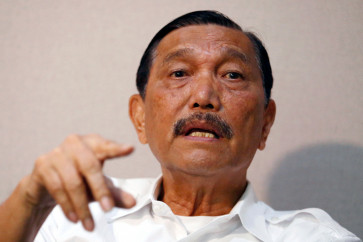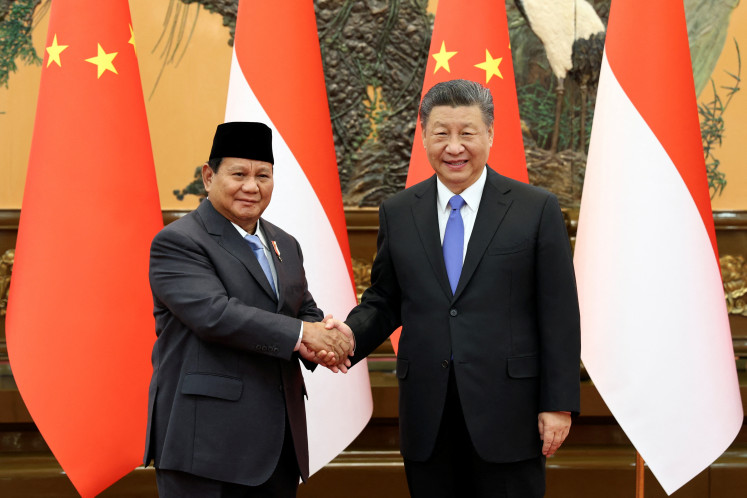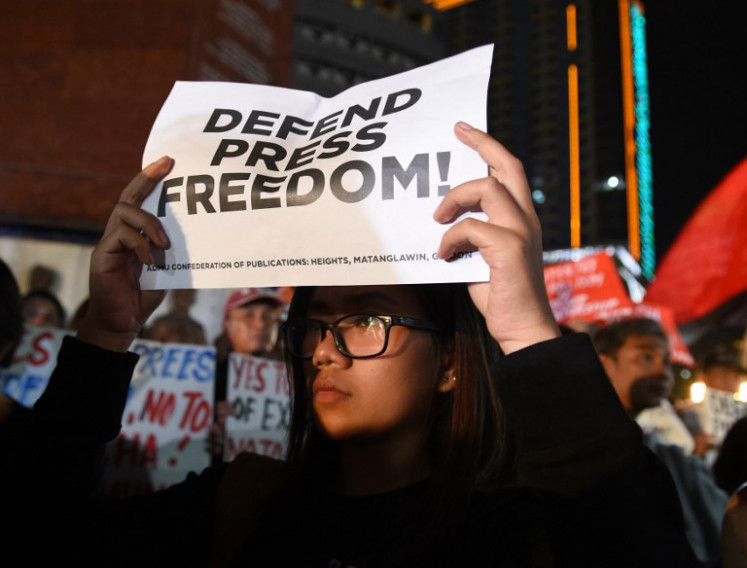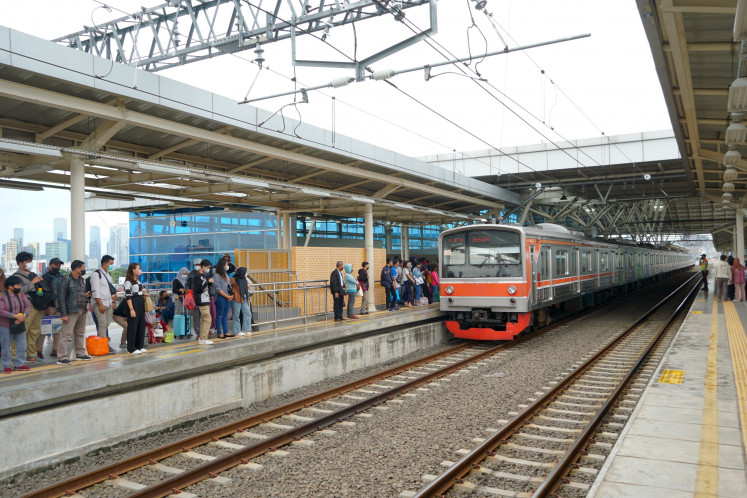Indonesia shouldn't worry about Trump leadership
When Trump is in the White House, two circumstances will remain at work in US foreign policy: the dynamics of great power politics and internal political pressures. For this reason, Trump does not have wide space to maneuver America’s external conduct in a way that completely contradicts the outgoing Barack Obama government’s foreign policy. It, in turn, affects Jakarta-Washington relations.
Change Size
 A man walks past a newspaper placard, showing President-elect Donald Trump, in Sydney, Thursday, Nov. 10, 2016, following the US presidential election. (AP/Rick Rycroft)
A man walks past a newspaper placard, showing President-elect Donald Trump, in Sydney, Thursday, Nov. 10, 2016, following the US presidential election. (AP/Rick Rycroft)
N
o one can be sure as to how US president-elect Donald Trump will lead America and play its world role. However, what happens under the new administration does not directly relate to the realities of the presidential campaign.
When Trump is in the White House, two circumstances will remain at work in US foreign policy: the dynamics of great power politics and internal political pressures.
For this reason, Trump does not have wide space to maneuver America’s external conduct in a way that completely contradicts the outgoing Barack Obama government’s foreign policy. It, in turn, affects Jakarta-Washington relations.
The three most important parts of US international affairs are Asia Pacific, Europe and the Middle East. There Washington is facing the increasingly significant presence of world powers, mainly China and Russia.
(Read also: Future of the global economy after Trump's victory)
This is certainly not about retaining the balance of power between US-China-Russia triangular ties, because there are not effective quantitative or qualitative measurements to approach the situation of being balanced in great power politics.
Since the 1990s, however, the US has been building an American order through the expansion of values, norms and institutions aimed at serving its global interests for security and wealth. Interrupting the US order, the Chinese and the Russians are making alternative choices that are by some means attractive to regional states.
That allows for the development of the so-called beyond American order. Therefore, the primary objective of US foreign policy is to maintain the favorable systems and mechanisms achieved after the Cold War, including regional economic and political cooperation.
Although Trump launched many provocative plans about the US standing against the existing order, the thriving rearrangement of global politics will prevent Trump’s US from making radical changes with the potential to disrupt efforts to stabilize the American order.
Within this context, the policy on strengthening diplomacy and multilateralism, instead of waging war and unilateralism, is the more rational course of action for the US.
On the domestic front, postelection politics in the US are also an important factor to thwart Trump’s controversial ideas being materialized.
With the high level of education and humanitarian awareness, the American public and civil society continue to put strong social pressure on politicians who wish to implement policies of intolerance toward a particular culture, religion, community or nation.
Even though Trump’s victory over candidate Hillary Clinton was astonishing, it does not necessarily mean that most Americans like what he has said and done. Arguably, the majority of voters wanted the country to be led by a leader from outside the political circles that have been in bitter quarrels and vying against one another, causing unpleasant impacts for the people.
The political gamble is advantageous for a newcomer like Trump. However, the incoming president will be closely watched by people who are inclusive, democratic and aware about the inevitability of the globalizing world society.
With this in mind, Indonesians should not be worried about Trump. Washington has no valid reason to be hostile toward Jakarta. Indonesia is still continually important to the US’ strategic Asia policy. Good relationships between the two sides shaped by Obama are the modality for Trump to keep Indonesia in the loop.
First, Indonesia is the largest ASEAN country and mover of various regional economic and political organizations in the Asia Pacific, in which the US is engaged.
(Read also: COMMENTARY: What does Trump’s win mean for the Indonesian economy?)
The US order such as the war on terror received large legitimacy due to the work of the ASEAN Regional Forum.
That is why withdrawing from, or at least reducing roles in, such regionalism means making room for the promoters and supporters of beyond the American order, most likely “the Chinese dream”, to broaden the scope of their involvement in the Asia-Pacific region, something that the US does not want to take place.
Second, Jakarta’s declared global maritime axis doctrine and policy, which demonstrate a closer connection with China, followed up with multibillion dollar infrastructure investments, can be comprehended by Washington as a signal of the attempt to decrease dependence on the US.
The populist nationalist leaders in Jakarta who seek to postpone deals on a PT Freeport Indonesia contract extension are clear evidence that the American economic order is challengeable. Thus, can the American government take a harsh stance on Indonesia on the issue? Perhaps it cannot on account of the cost being higher than the benefit.
Third, in nontraditional foreign policy areas, such as the fight against transnational terrorism and radicalism, Indonesia plays a significant role as a bilateral partner of the US. Trump, who showed unfavorable views about the Muslim world, cannot ignore that the more than 200 million Indonesian Muslims are not only a matter of numbers, but also of quality, in the US war on terror.
Then, the question for the Indonesian side is how Jakarta can benefit from the strategic importance and advance its bebas aktif (free and active) foreign policy toward the new US leadership.
Bebas aktif does not connote a prohibition of becoming part of any external orders, yet it suggests independence against outside influences, and bases action merely on the interests of Indonesians.
---------------
We are looking for information, opinions, and in-depth analysis from experts or scholars in a variety of fields. We choose articles based on facts or opinions about general news, as well as quality analysis and commentary about Indonesia or international events. Send your piece to community@jakpost.com. For more information click here.









